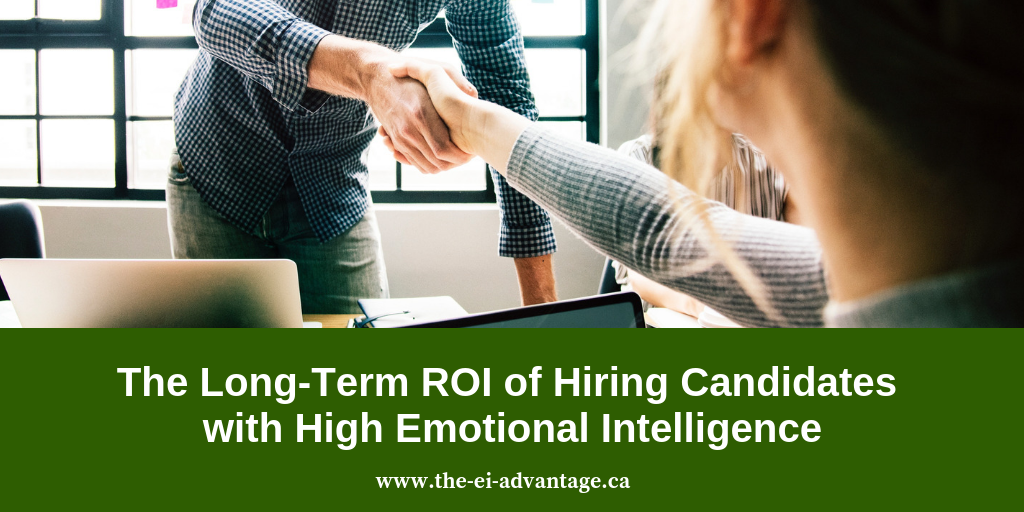Blog
The Long-Term ROI of Hiring Candidates with High EI
October 18, 2018

One of the most common misconceptions about measuring EI is that it’s like taking a personality test. In fact, emotional intelligence is more about how individuals use and manage their emotions, and unlike a personality test, individuals can enhance emotional skills, whereas they are not likely to change their personality. Furthermore, assessments such as the MHS EQi-2.0 are statistically reliable and can be validated to help make effective hiring decisions.
By hiring with emotional intelligence in mind you can accurately assess not just whether a candidate would be a good fit for the specific role you’re looking to fill, but also if their values are aligned with your organization’s values, which will play a pivotal role in how quickly they’ll feel at home in their new position.
After all, as many of us who have hired inappropriate candidates can attest, a new employee who is placed in a role where they are unqualified, or required to use skills that don’t feel natural, will quickly drain of motivation, productivity, and energy.
This is what makes measuring a candidate’s EI so vital when it comes to the hiring process, and why emotional intelligence plays an increasingly larger role in long-term employee productivity and success.
Unlocking Employee Patterns for Long-Term ROI
By measuring emotional intelligence in each new hire and by ensuring that they are aligned with the right role for their skill set, motivations, and goals, you can begin to identify hiring strategies that lead to success.
This transformative step not only helps your employees thrive in their new role, but it can also help identify HR blind spots that might be preventing the new team member from achieving their maximum potential.
By delivering an EI assessment you can apply a “coach approach” and offer the training and coaching needed to nurture the new hire as they familiarize themselves with their new role, and which will assist with developing a plan for success that will encourage them to grow, thrive, and be as productive as possible.
This not only assists with individual success, but also can help with developing better functioning internal teams, assigning tasks, project leads, and other human resource issues that often hinder companies in achieving business goals.
How Emotional Intelligence Generates Real ROI
Some of the benefits of using EI to hire the right team members and ensure that they are aligned with the right roles within your organization are many, including:
- Lower costs associated with employee turnover.
- A reduction in time wasted managing low-energy, demotivated employees
- Motivated and happy employees who use their time more effectively and work harder.
The Biggest Gain: A Happy, Motivated Workforce
Whether we’re HR experts, C-Suite leaders, or recruiters looking to help our clients get the most out of a prospective candidate, our goal when hiring a new team member is to ensure that they are as productive and happy as possible in their new role.
By focusing on “soft skills” like interpersonal communication, communication styles, and motivating factors, we can build workplace teams from the ground up that are composed of individuals who can all work well together, and who inspire one another to be happy and motivated to move towards shared business goals.
After all, happy employees are a minimum of 12% more productive than those who report feeling dissatisfied with their job, and if we amplify that to consider each new hire we can dramatically increase (or decrease) long-term ROI, as well as overall impact on the team performance.
For more information and tips on how to recruit for strengths and emotional intelligence, subscribe to our newsletter or contact us today.
